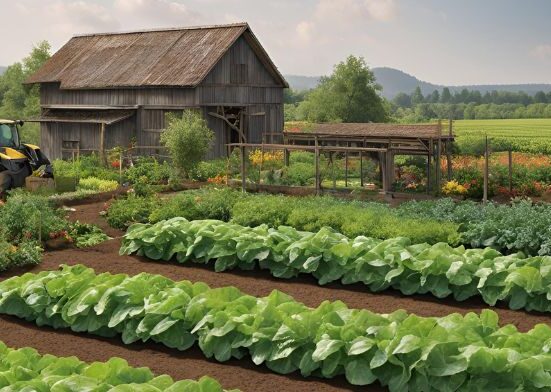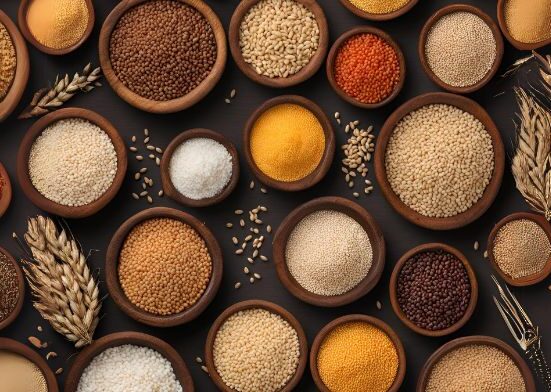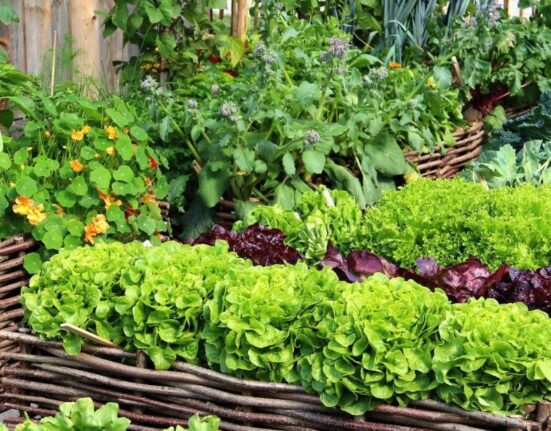Have you ever looked at your food scraps and garden waste and thought, “Isn’t there a better way than tossing this in the trash?” That’s where composting comes in—a simple, natural process that turns everyday organic waste into a rich, crumbly soil conditioner that gardeners call “black gold. “Composting techniques to enrich garden soil isn’t just about getting rid of waste; it’s about giving back to the Earth and your garden simultaneously. The controlled decomposition of organic items, such as fruit, is known as composting. Peels, coffee grounds, leaves, and grass clippings into nutrient-dense humus. Microorganisms—bacteria, fungi, and even worms—do the heavy lifting, transforming waste into something magical that improves soil structure, retains moisture, and feeds your plants naturally.
More than just a gardening trick, composting is a decisive step toward a more sustainable lifestyle. Composting techniques to enrich garden soil can fit into your routine, whether you have a backyard, a balcony, or just a few containers. And trust us—it’s way more satisfying than taking out the trash. Ready to turn your scraps into soil treasure? Let’s dig in.
Why Composting Matters
Composting is more than just a way to deal with kitchen scraps—it’s one of the easiest and most impactful things you can do for the planet and your garden. Every time you toss banana peels, eggshells, or yard clippings into a compost pile instead of the trash, you’re helping reduce the amount of waste in landfills. Why does that matter? Organic waste in landfills breaks down without oxygen, releasing methane—a powerful greenhouse gas way worse than carbon dioxide.
But the benefits don’t stop with waste reduction. Composting returns vital nutrients to the soil, acting like a natural fertilizer that boosts plant growth without synthetic chemicals. It improves soil structure, enhances water retention, Flood Irrigation Pros and Cons and supports beneficial organisms that keep your garden thriving. In short, compost feeds your soil, and healthy soil grows healthier plants. Plus, composting helps you take control of your food waste and makes your gardening efforts more sustainable. It’s a win-win—for you, your garden, and the environment. So yeah, Composting techniques to enrich garden soil might be the superhero of eco-friendly living.
Types of Composting Techniques

When it comes to composting, there’s no one-size-fits-all method. Whether you’ve got acres of land or a tiny apartment balcony, a composting technique can work for your space and lifestyle. Let’s break down the most popular types of Composting techniques to enrich garden soil so you can find the one that fits you best.
1. Cold Composting
Cold composting is the simplest method—pile up your organic waste and let nature take its course. It requires minimal effort, but it’s also the slowest. Expect it to take six months to two years before your pile becomes usable compost. Great for beginners and low-maintenance gardeners.
2. Hot Composting
Want to compost fast? Hot composting is your go-to. By carefully balancing greens (nitrogen-rich materials) and browns (carbon-rich materials) and regularly turning the pile, you can generate enough heat to break everything down in as little as 4–8 weeks. This method is more hands-on, but the results are quick and rich.
3. Vermicomposting
This one’s for the worm lovers out there! Vermicomposting uses red wigglers (a type of worm) to munch through your food scraps and turn them into top-quality compost. It’s perfect for indoor or small-space composting and produces worm castings, which are supercharged soil boosters.
4. Bokashi Composting
Unlike traditional composting, Bokashi is a fermentation process. You use a special bran inoculated with beneficial microbes to ferment all types of food waste—including meat and dairy. It’s fast, nearly odorless, and works great indoors. Top 10 Proven Weed Management Once fermented, the waste is buried or added to a traditional compost pile.
5. Trench Composting
Super easy and discreet, trench composting involves digging a hole, filling it with organic waste, and covering it with soil. Over time, the materials decompose in the ground, directly enriching the soil where your plants grow.
6. Sheet Composting (Lasagna Gardening)
Think of this like layering a cake—but for your garden! You alternate layers of greens and browns directly on top of garden soil. Over time, it breaks down in place, creating rich, fertile beds perfect for planting.
No matter your space, time, or experience level, Composting techniques to enrich garden soil can help you transform waste into garden gold.
How Composting Works
Composting is nature’s recycling system—it takes organic waste and turns it into nutrient-rich soil through decomposition. But how exactly does that happen? It all comes down to microbes, moisture, air, and the right balance of materials.Here’s the simple science: tiny organisms like bacteria, fungi, and even earthworms break down your garden trash and leftover food. To do their job well, they need a good mix of “greens“ (like fruit peels, grass clippings, and coffee grounds that are rich in nitrogen) and “browns“ (like dry leaves, cardboard, and straw that provide carbon). When these two are balanced properly, decomposition speeds up, How Can Farmers Cut Waste in Sustainable Agriculture and odors are kept in check.
The pile also needs oxygen and the correct moisture level—think of it like a sponge: not too wet or dry. With regular turning (to add air) and monitoring, the compost heats up, breaking down materials quickly and safely. Over time, all that kitchen and garden waste transforms into a dark, crumbly, earthy-smelling substance that plants love.So yeah, composting is a bit like cooking—mix the right ingredients, keep an eye on it, and let the heat do its thing.
Step-by-Step Guide to Making Great Compost
Making rich, dark compost sounds like a complicated science experiment, but following simple steps is easy. Here’s your go-to guide for turning everyday waste into black gold for your garden.
1. Choose Your Composting Spot
First, decide where you want your compost pile or bin. Outdoors, a shady spot with good drainage, is ideal. If you’re short on space, consider using a compost tumbler or indoor bin for smaller batches.
2. Start Layering Greens and Browns
Begin your pile with a layer of browns (carbon-rich materials like dry leaves, shredded newspaper, or cardboard), followed by greens (nitrogen-rich materials like fruit peels, coffee grounds, and vegetable scraps). Keep layering, Green Magic Homes just like you’re building a lasagna. Aim for a 2–3 browns ratio to 1 part greens to keep things balanced.
3. Add Moisture
Your compost pile should feel like a wrung-out sponge—moist but not soggy. If it’s too dry, sprinkle some water on it. Add more browns to remove the excess moisture if it’s too wet.
4. Turn the Pile Regularly
Use a pitchfork or shovel to turn your compost every 1–2 weeks. This adds oxygen and helps speed up decomposition. A hot pile is a happy pile—compost can heat up to 130–160°F (55–70°C), which kills off weed seeds and harmful pathogens.
5. Be Patient and Monitor
Good composting takes time. Depending on your method, you might see results in as little as a month (hot composting) or up to a year (cold composting). Watch for signs of balance—too smelly? Add more browns. Too dry? Add water.
6. Harvest Your Compost
It’s ready when the compost turns dark, crumbly, and smells earthy! Use it to enrich garden beds and pot soil or compost tea for an additional nutrient boost.
Following these steps will create high-quality compost that your garden will love.
Benefits of Composting
Composting isn’t just about eliminating waste—it’s about creating something valuable for your garden and the planet. First off, composting drastically reduces the amount of trash that ends up in landfills. Less waste means fewer greenhouse gas emissions like methane, making composting a simple but powerful way to fight climate change.But the real magic happens in your garden. Compost acts like a natural fertilizer, feeding the soil with vital nutrients and supporting the growth of more robust, healthy, and resilient plants. Sustainable Irrigation It also strengthens the soil’s structure, enabling it to hold moisture better and drain more efficiently—so you water less and grow more lush.
Compost encourages a healthy population of beneficial microbes, fungi, and earthworms, which all play a role in building rich, living soil. It can even help prevent plant diseases and pests without chemical treatments.And here’s a bonus: it saves money. When you use compost, you can cut back on buying store-bought soil amendments and fertilizers. So whether you’re growing vegetables, flowers, or houseplants, composting gives you healthier plants and a healthier planet. It’s a win all around.
Advanced Composting Tips

Once you’ve nailed the basics, it’s time to level up your composting game with a few pro tips that make the process faster, cleaner, and more efficient.
1. Chop It Small
The components decompose more quickly the smaller they are. Chop or shred kitchen scraps, leaves, and cardboard before adding them to your pile. It gives microbes more surface area to work on—and they’ll thank you with faster compost.
2. Keep It Hot
To speed things up, aim for a hot compost pile. Keep browns and greens in balance, keep it moist like a wrung-out sponge, and turn it often. If your pile gets hot enough (130–160°F), it’ll break down faster and kill off weed seeds and pathogens.
3. Use a Compost Thermometer
Want to geek out a bit? Stick a compost thermometer into your pile to monitor temperature. This helps you know when to turn the pile or adjust materials. Staying in the optimal range speeds everything up.
4. Add Compost Starters
Add a compost starter (store-bought or homemade from finished compost or garden soil) if your pile needs a boost. It introduces healthy microbes that jumpstart decomposition.
5. Try Layering Manure or Coffee Grounds
Nitrogen-rich materials like manure or used coffee grounds can supercharge your compost. Just don’t overdo it—balance is still key.
With these advanced tips, your compost pile will work smarter, not harder—giving you nutrient-rich results in record time.
Sustainable Gardening with Compost
Sustainable gardening is all about working with nature, not against it—and composting is at the heart of that philosophy. By turning kitchen scraps, yard waste, and even newspaper into rich organic matter, you’re closing the loop and giving your garden exactly what it needs to thrive naturally. Rather of depending on artificial chemicals and fertilisers, , compost feeds your soil with nutrients to build long-term health, not just short bursts of growth. Adding compost regularly improves soil structure, boosts water retention, and fosters biodiversity underground. Your plants grow stronger, need less water, and are more resilient to pests and disease. It’s a system that gives back more than it takes.
Additionally, Composting techniques to enrich garden soil lowers your carbon footprint by preventing preventing the disposal of organic waste in landfills and methane emissions. Plus, it turns everyday “trash“ into treasure—saving money and making gardening more rewarding. Whether you’re growing vegetables, flowers, or herbs, using compost is one of the easiest ways to garden responsibly and make your green space truly eco-friendly. Sustainable gardening starts with the soil—and compost is the ultimate soil superhero.
Conclusion
Composting is a powerful tool for enriching your garden soil and promoting sustainability. By transforming everyday organic waste into nutrient-rich compost, You lessen how much garbage is dumped in landfills and create a healthier environment for your plants. Whether you’re a beginner just starting with simple cold composting or a pro using advanced techniques like vermicomposting or Bokashi, the benefits of composting are undeniable.
From improving water retention and soil structure to reducing the need for chemical fertilizers, composting offers a natural, cost-effective solution to grow healthier, more resilient plants. It’s an eco-friendly practice that supports biodiversity and reduces your carbon footprint, making it a win for your garden and the planet. So get your kitchen scraps together, roll up your sleeves, and begin composting. The process is simple and satisfying, and the rewards are worth the effort. By composting, you’re taking care of your garden and contributing to a more sustainable world, one compost pile at a time. Ready to turn waste into wonder? Start composting today and watch your garden—and the planet—flourish.
FAQ
1. Can you compost cooked food scraps?
Yes, but avoid fats, oils, and large quantities of meat or dairy. These can attract pests and take longer to break down. Small amounts of cooked food are acceptable if properly balanced with other compost materials.
2. How long does composting take?
The time varies based on your method. Hot composting can take 1–3 months, while cold composting can take up to a year or more. Turning the pile regularly speeds up the process.
3. Is compost safe for all plants?
Yes! Compost is safe for all plants when applied properly. It improves soil health but should be mixed well to avoid overwhelming sensitive plants with too much nitrogen or acidity.
4. Can I compost in an apartment?
Absolutely! Indoor composting methods like vermicomposting (using worms) or Bokashi are perfect for small spaces. Special bins make it easy to compost in apartments without causing odors or mess.
5. What do I do if my compost smells bad?
If your compost smells, it’s likely too wet or unbalanced. Add more browns (like dry leaves or straw) to reduce moisture and turn the pile to increase airflow. The smell should disappear as it stabilizes.








